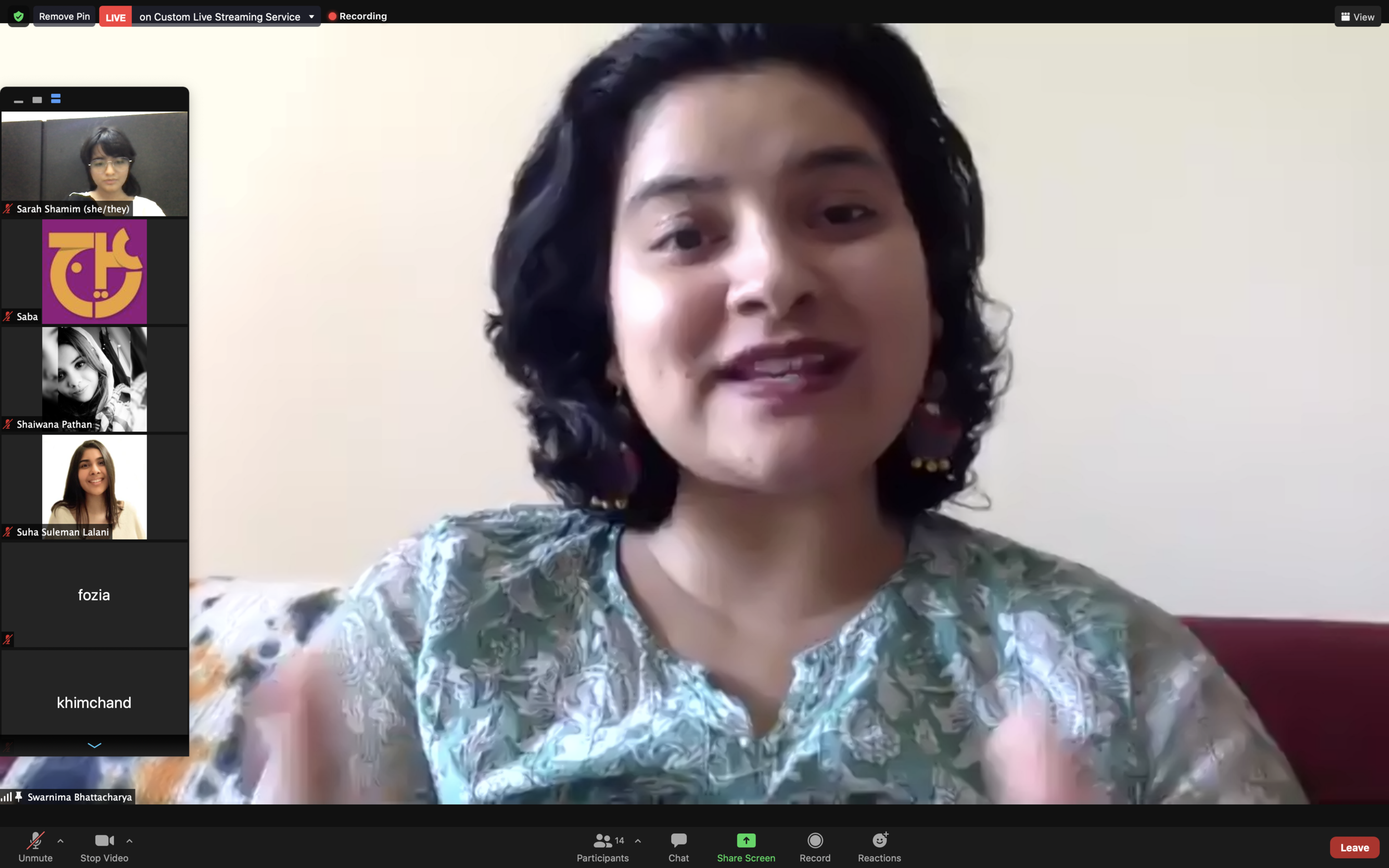Menstruating Sustainably - Swarnima Bhattacharya talks about menstrual waste, comfort, and accessibility
On May 21st, 2021, Aurat Raaj celebrated Menstrual Hygiene Day by organizing a workshop, inviting 16 speakers from different countries and backgrounds to carry out discourse about several topics concerning menstruation.
A core theme of the workshop was sustainability in menstruation. One such aspect of the workshop was a lightning talk by Swarnima Bhattacharya where menstrual product waste and its environmental impact were discussed.
Swarnima Bhattacharya is the founder of TheaCare, a platform that provides long-term care for menstrual, hormonal, and mental health for women. Additionally, she is the Curator of FemmeCon, India's first women's health festival. She is part of the Youth Advisory Board for Unilever's "Self-Esteem Project", an Impact Officer at World Economic Forum's Global Shapers Community in New Delhi, and Astra Zeneca Young Health Scholar.
Menstrual Waste - The Numbers
Pakistan experiences a menstrual waste problem that remains relatively unaddressed. Most women make use of disposable sanitary pads which are predominantly made of plastic. According to Recircle, in Pakistan, approximately 55 million women menstruate, assuming that 10% of them, which is 5.5 million use reusable products and of around 250 menstrual products per year. This means that 1.375 billion waste menstrual products are generated per year.
The Global Shapers Community in New Delhi, which Swarnima is affiliated with, currently makes use of a Menstrual Waste Calculator, which approximates the plastic waste an individual generates when they dispose of menstrual products. This waste is displayed in terms of plastic bags for better understanding. We were interested in influencing the collection of such data in Pakistan, which is why we asked Swarnima about this.
Something really interesting that Swarnima pointed out about the calculator was that realizing one’s plastic footprint due to their menstrual waste does not mean that the only solution is to switch to sustainable menstrual products such as menstrual cups, reusable pads, or biodegradable single-use pads.
Since not all menstruating individuals are comfortable with them and these products are not accessible to everyone. Realizing the plastic generated by period waste could also mean that an individual can employ other methods to reduce their plastic usage, such as, by using less disposable plastic bags and cutlery, to make up for their plastic footprint overall.
Comfort and Accessibility
As aforementioned, comfort and accessibility around sustainable menstrual products were two important things brought up during the lightning talk. Due to the stigma around menstrual cups due to the social construct of virginity, many individuals are uncomfortable with inserting menstrual cups.
However, the comfort conundrum is not limited to menstrual cups. Swarnima enlightened us on how periods have a major social stigma in South Asian countries such as India and Pakistan, which is why it is not socially acceptable to hang washed cloth pads in every residential area.
Additionally, many areas experience water shortages. This means individuals may not have access to enough water to employ regular use of reusable menstrual products which require to be washed repeatedly.
The accessibility issue is also financial. Biodegradable reusable products are not produced in bulk like regular pads, and expensive raw materials such as Banana fiber make them even more expensive, hence reducing their affordability for many.
Concluding Thoughts
Swarnima left us with nuggets of wisdom, stating that sustainability in menstruation is more nuanced and layered than it seems. Besides the obvious waste issue, issues of comfort and accessibility are also to be considered. In the end, a sustainable solution is not simply a plastic-free solution. Instead, it is a solution that is comfortable, affordable, and feasible over long periods of time.
.png)
